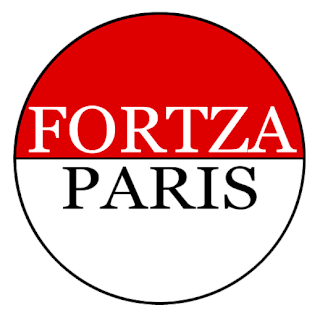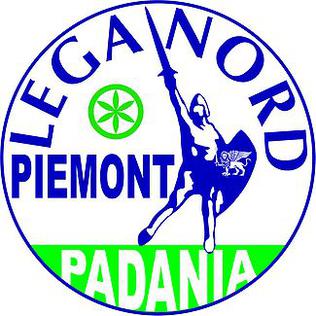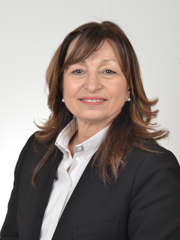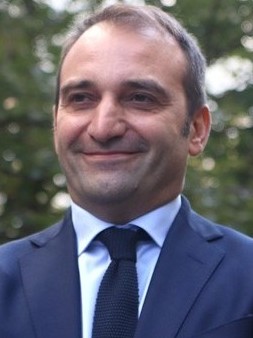| |||||||||||||||||||||||||||||||||||||||||
All 51 seats to the Regional Council of Piedmont | |||||||||||||||||||||||||||||||||||||||||
|---|---|---|---|---|---|---|---|---|---|---|---|---|---|---|---|---|---|---|---|---|---|---|---|---|---|---|---|---|---|---|---|---|---|---|---|---|---|---|---|---|---|
| Turnout | 66.44% ( | ||||||||||||||||||||||||||||||||||||||||
| |||||||||||||||||||||||||||||||||||||||||
 | |||||||||||||||||||||||||||||||||||||||||
| |||||||||||||||||||||||||||||||||||||||||
 |
|---|
|
The 2014 Piedmontese regional election took place on 25 May 2014.
| |||||||||||||||||||||||||||||||||||||||||
All 51 seats to the Regional Council of Piedmont | |||||||||||||||||||||||||||||||||||||||||
|---|---|---|---|---|---|---|---|---|---|---|---|---|---|---|---|---|---|---|---|---|---|---|---|---|---|---|---|---|---|---|---|---|---|---|---|---|---|---|---|---|---|
| Turnout | 66.44% ( | ||||||||||||||||||||||||||||||||||||||||
| |||||||||||||||||||||||||||||||||||||||||
 | |||||||||||||||||||||||||||||||||||||||||
| |||||||||||||||||||||||||||||||||||||||||
 |
|---|
|
The 2014 Piedmontese regional election took place on 25 May 2014.
Regional elections in Piedmont were ruled by the Tatarella law, which was approved in 1995 and provided for a mixed electoral system. Four fifths of the regional councilors were elected in provincial constituencies by proportional representation, using the largest remainder method with a Droop quota and open lists, while the residual votes and the unassigned seats were grouped into a single regional constituency, where the whole ratios and the highest remainders were divided with the Hare quota among the provincial party lists; one fifth of the council seats instead was reserved for regional lists and assigned with a majoritarian representation system, in which the leader of the regional list that scored the highest number of votes was elected to the presidency of the region, while the other candidates were elected regional councilors.
A threshold of 3% had been established for the provincial lists, which could still have entered the regional council if the regional list to which they were connected had scored at least 5% of valid votes. The panachage was also allowed; the voter can indicate a candidate for the presidency but prefer a provincial list connected to another candidate.
A snap election, it was prompted by the dissolution of the Regional Council of Piedmont by the Regional Administrative Tribunal on the grounds that one of the lists supporting Roberto Cota (Northern League) in the 2010 Piedmontese regional election in which Cota narrowly defeated Mercedes Bresso, the incumbent president for the Democratic Party (PD), had committed irregularities in filing the slates for the election. [1]
In 2014, Cota chose not to stand again for president and the parties composing his coalition failed to agree on a single candidate, [2] resulting in a landslide victory for Sergio Chiamparino, a member of the PD who had been mayor of Turin from 2001 to 2011. [3]
| Political party or alliance | Constituent lists | Previous result | Candidate | |||
|---|---|---|---|---|---|---|
| Votes (%) | Seats | |||||
| Centre-right coalition | Forza Italia | 25.0 | 13 | Gilberto Pichetto Fratin | ||
| Northern League Piedmont | 16.7 | 9 | ||||
| Greens Greens | 1.8 | 1 | ||||
| Pensioners' Party | 1.5 | 1 | ||||
| United Right (incl. LD, FLI, DS) | 0.7 | – | ||||
| Civic List for Piedmont | — | — | ||||
| Great South | — | — | ||||
| Centre-left coalition | Democratic Party | 23.2 | 12 | Sergio Chiamparino | ||
| Italy of Values | 6.9 | 3 | ||||
| Moderates | 3.1 | 1 | ||||
| Left Ecology Freedom | 1.4 | 1 | ||||
| Chiamparino for President | — | — | ||||
| Civic Choice | — | — | ||||
| Five Star Movement | 3.7 | 2 | Davide Bono | |||
| Brothers of Italy | — | — | Guido Crosetto | |||
| New Centre-Right – Union of the Centre | — | — | Enrico Costa | |||
| The Other Piedmont to the Left (incl. PRC, SA, AC) | — | — | Mauro Filingeri | |||
 | |||||||||
| Candidates | Votes | % | Seats | Parties | Votes | % | Seats | ||
|---|---|---|---|---|---|---|---|---|---|
| Sergio Chiamparino | 1,057,031 | 47.09 | 11 | ||||||
| Democratic Party | 704,541 | 36.17 | 17 | ||||||
| Chiamparino for President | 94,615 | 4.85 | 2 | ||||||
| Moderates | 47,901 | 2.45 | 1 | ||||||
| Left Ecology Freedom | 40,873 | 2.09 | 1 | ||||||
| Civic Choice | 29,313 | 1.50 | 1 | ||||||
| Italy of Values | 13,658 | 0.70 | – | ||||||
| Total | 930,901 | 47.79 | 22 | ||||||
| Gilberto Pichetto Fratin | 495,993 | 22.09 | 1 | ||||||
| Forza Italia | 302,743 | 15.57 | 6 | ||||||
| Northern League Piedmont | 141,741 | 7.27 | 2 | ||||||
| Pensioners' Party | 13,837 | 0.71 | – | ||||||
| Civic List for Piedmont | 8,853 | 0.45 | – | ||||||
| Greens Greens | 5,435 | 0.27 | – | ||||||
| United Right | 5,004 | 0.25 | – | ||||||
| Great South | 1,676 | 0.08 | – | ||||||
| Total | 479,289 | 24.61 | 8 | ||||||
| Davide Bono | 481,453 | 21.45 | – | Five Star Movement | 396,295 | 20.34 | 8 | ||
| Guido Crosetto | 117,807 | 5.24 | – | Brothers of Italy | 72,776 | 3.73 | 1 | ||
| Enrico Costa | 67,025 | 2.98 | – | New Centre-Right – Union of the Centre | 49,059 | 2.51 | – | ||
| Mauro Filingeri | 25,193 | 1.12 | – | The Other Piedmont to the Left | 19,467 | 0.99 | – | ||
| Total candidates | 2,244,502 | 100.00 | 12 | Total parties | 1,947,787 | 100.00 | 39 | ||
| Source: Ministry of the Interior – Historical Archive of Elections | |||||||||

The Moderates are a centrist political party in Italy, active mainly in Piedmont, but also in Lombardy, Emilia-Romagna, Campania and Sicily. The party, whose leader is Giacomo Portas, is associated with the centrist party Italia Viva.

Sergio Chiamparino is an Italian politician. He was the mayor of Turin from 2001 to 2011, and the president of Piedmont from 2014 to 2019. He is also the author of several books, including Semplicemente sindaco, La sfida. Oltre il Pd per tornare a vincere. Anche al Nord (2010), Cordata con sindaco, and TAV. Perché sì.

Liga Veneta Repubblica is a Venetist political party in Veneto, Italy. The party maintains a mildly separatist position and campaigns for the self-government of Veneto.

The Greens Greens is a liberal-environmentalist political party in Italy. The party is predominantly active in Piedmont.

Fortza Paris is a regionalist political party in Sardinia.

Lega Piemonte, whose complete name is Lega Piemonte per Salvini Premier, is a regionalist political party active in Piedmont. Established in 1987, it was one of the founding "national" sections of Lega Nord (LN) in 1991 and has been the regional section of Lega per Salvini Premier (LSP) in Piedmont since 2020.

The politics of Piedmont, a region of Italy, takes place in a framework of a presidential system of representative democracy, whereby the president of Piedmont is the head of government, and of a pluriform multi-party system. Executive power is exercised by the regional government. Legislative power is vested in both the government and the Regional Council of Piedmont.

The 2005 Piedmontese regional election took place on 3–4 April 2005. Mercedes Bresso of the Democrats of the Left defeated the incumbent Enzo Ghigo of Forza Italia.

The 2000 Piedmontese regional election took place on 16 April 2000. Enzo Ghigo of Forza Italia (FI) was re-elected for the second time in a row as the president of Piedmont, defeating Livia Turco of the Democrats of the Left (DS). His re-election resulted in a landslide, as this time he was also supported also by Lega Nord.

The 1995 Piedmontese regional election took place on 23 April 1995. For the first time, the president of Piedmont was directly elected by the people; the election was not yet binding and the president-elect could have been replaced during the term.
Lega Padana is a Padanist and separatist political party founded in 1999 and active mainly in Piedmont, Italy.

The 2010 Piedmontese regional election took place on 28–29 March 2010 as part of Italy's round of regional elections. Mercedes Bresso of the centre-left Democratic Party, the incumbent president of the region, lost her seat to Roberto Cota, leader of the Northern League Piedmont and floor leader of Lega Nord in the Italian Chamber of Deputies, who was backed also by The People of Freedom.

The Ligurian regional election of 2010 took place on 28–29 March 2010.

The Italian regional elections of 1985 were held on 12 and 13 May. The fifteen ordinary regions, created in 1970, elected their fourth assemblies.

Guido Crosetto is an Italian businessman and politician, who has been serving as Minister of Defence since 22 October 2022 in the government of Giorgia Meloni.

Stefano Bonaccini is an Italian politician and member of the Democratic Party (PD), of which he is serving as president since 12 March 2023. Moreover, Bonaccini has been serving as the president of Emilia-Romagna since 24 November 2014. Bonaccini started his political career in the Italian Communist Party (PCI) and followed that party's transition toward social democracy, becoming one of the main representatives of the PD's reformist or moderate wing.

The 2019 Piedmontese regional election took place on 26 May 2019, the same day as the 2019 European Parliament election in Italy. The election was for all 50 members of the Regional Council of Piedmont, as well as for the president of Piedmont, who is also a member of the council.

The 2019 Umbrian regional election took place on 27 October 2019. The election was for all 20 members of the Legislative Assembly of Umbria, as well as for the President of the Region, who is also a member of the Assembly.

The 2021 Turin municipal election took place in Turin, Italy, on 3 and 4 October 2021, to elect the mayor and the 38 members of the Turin city council. Since no mayoral candidate won a majority of votes on the first round, a runoff was held on 17 and 18 October 2021. The second round was won by the centre-left coalition candidate Stefano Lo Russo, member of the Democratic Party, who was officially inaugurated as the new mayor of Turin on 27 October 2021. The incumbent mayor of Turin, Chiara Appendino of the Five Star Movement, did not run for re-election.

Gilberto Pichetto Fratin is an Italian politician who is the Minister of the Environment and Energy Security of the Meloni government since 22 October 2022.